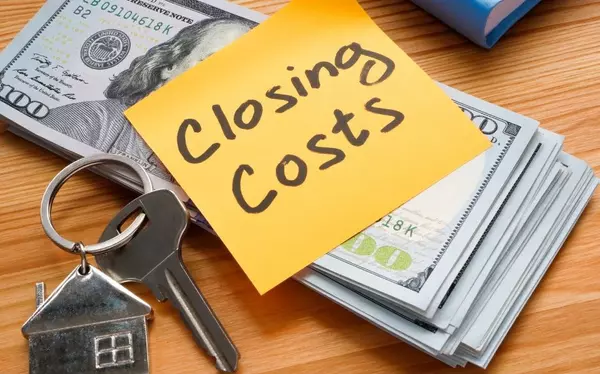Renting vs. Buying: Deciding on Your Next Home

Renting vs. Buying: Deciding on Your Next Home
The perennial question of whether to rent or buy a home is one that many prospective homeowners grapple with. It's a decision that goes beyond mere preference; it involves a careful consideration of various factors that can significantly impact one's financial stability and lifestyle. Before diving into the debate, it's essential to understand the nuances of both options thoroughly.
Renting offers flexibility, making it an attractive choice for those who prioritize mobility. With no long-term commitment, renters have the freedom to move as needed without the hassle of selling a property. Additionally, renting typically requires lower upfront costs compared to buying, as there's no need for a hefty down payment. However, renters miss out on the opportunity to build equity, as their monthly payments do not contribute to ownership.
On the other hand, buying a home provides a sense of stability and permanence. Homeownership allows individuals to establish roots in a community and create a space that reflects their style and preferences. Moreover, homeowners have the potential to build equity over time, as property values appreciate. However, the financial commitment associated with buying—such as a down payment and ongoing mortgage payments—can be daunting for some.
Ultimately, the decision between renting and buying hinges on individual circumstances, including financial readiness, lifestyle preferences, and long-term goals. By thoroughly understanding the implications of each option, prospective homeowners can make an informed choice that aligns with their needs and aspirations.
Key Takeaways
- Assess personal goals: Prioritize your needs and desires, considering factors like flexibility, stability, and financial goals.
- Evaluate financial readiness: Determine affordability by assessing income, expenses, and savings to understand your financial capacity for either renting or buying.
- Conduct market analysis: Research local real estate trends and property values to gain insights into pricing, inventory, and market conditions.
- Plan for the long term: Consider future goals and lifestyle changes to ensure that your housing choice aligns with your evolving needs and aspirations.
- Make an informed decision: Seek professional advice and thoroughly research your options before making a choice, ensuring that it aligns with your individual circumstances and preferences for a fulfilling living experience.
Understanding Renting: Pros and Cons
Renting offers several advantages that make it an appealing option for many individuals. One of the key benefits is flexibility. Renters have the freedom to move easily, whether it's due to job changes, life transitions, or simply a desire for a change of scenery. This flexibility can be especially advantageous for young professionals or individuals who prefer not to be tied down to a specific location.
Another advantage of renting is that it has lesser upfront fees than owning a property. Unlike homeowners who are required to make a substantial down payment, renters typically only need to cover a security deposit and possibly the first month's rent. This affordability factor can make renting a more accessible option for those with limited savings or uncertain financial situations.
Renting also comes with less responsibility when it comes to maintenance. In most rental agreements, the landlord is responsible for handling repairs and upkeep, relieving renters of the burden of maintaining the property themselves. This can be particularly convenient for individuals who lack the time, skills, or resources to tackle home maintenance tasks.
However, renting does have its drawbacks. One of the most severe drawbacks is the absence of equity. Unlike homeowners who build equity over time as they pay down their mortgage, renters do not accumulate any ownership stake in the property. This means that the money paid in rent does not contribute to long-term wealth building.
Additionally, renters may face limitations on customization. Landlords often impose restrictions on painting, renovations, and other alterations, limiting renters' ability to personalize their living space to their liking. Finally, there's the potential for rent increases, as landlords have the authority to adjust rental rates at their discretion, subjecting renters to the uncertainties of market conditions.
Exploring Homeownership: Benefits and Drawbacks
Homeownership is often seen as a milestone in achieving the American Dream, offering numerous advantages that appeal to many individuals. One of the primary benefits of buying a home is the opportunity to build equity. Unlike renting, where monthly payments only go towards occupying the space, homeownership allows individuals to invest in property that has the potential to appreciate over time, building wealth and financial security.
Another advantage of homeownership is the stability it provides. Owning a home offers a sense of permanence and belonging, allowing individuals to establish roots in a community and create a space that truly feels like their own. This stability can be particularly appealing to families or individuals seeking long-term security.
Furthermore, homeownership grants individuals the freedom to modify and personalize their property to suit their preferences. From renovations to landscaping, homeowners have the flexibility to customize their living space according to their lifestyle and aesthetic preferences, creating a sense of ownership and pride in their home.
However, homeownership also comes with its share of challenges. One of the most significant drawbacks is the financial commitment involved. Buying a home requires a substantial down payment, as well as ongoing mortgage payments, which can strain the finances of some individuals.
Additionally, homeowners are responsible for maintenance and repairs, adding to the overall cost of homeownership. From routine upkeep to major renovations, homeowners must be prepared to invest time and money into maintaining their property.
Furthermore, homeownership carries inherent market risks, such as property value fluctuations and the potential for financial loss. While homeowners may benefit from property appreciation, they are also vulnerable to market downturns that can erode their investment.
Financial Considerations: Renting vs. Buying
When it comes to deciding between renting and buying a home, financial considerations play a crucial role in the decision-making process. Let's delve into the financial aspects of both options to better understand their implications.
Renting offers a predictable financial scenario with monthly budgeting. Renters know exactly how much they need to allocate towards housing expenses each month, making it easier to plan and manage their finances. Additionally, renting typically involves lower upfront costs compared to buying, which may allow renters to save more money in the short term. However, it's important to note that renting does not provide any opportunity for equity growth. While renters avoid the risk of market fluctuations, they also miss out on the potential for long-term investment returns that homeownership can offer.
On the other hand, buying a home requires a significant financial commitment upfront, including a down payment, closing costs, and ongoing mortgage payments. While this can be daunting for some, homeowners have the potential to build equity over time through property appreciation. As property values increase, homeowners may see a return on their investment, providing a source of long-term financial stability.
Understanding local market trends and property values is essential for prospective buyers. By researching the housing market and consulting with real estate professionals, buyers can make informed decisions and potentially capitalize on investment opportunities.
In summary, both renting and buying have financial implications that should be carefully considered. Renting offers predictability and lower upfront costs but lacks the potential for equity growth. Buying a home requires a significant initial investment but offers the opportunity for long-term financial gain through property appreciation. Ultimately, the right choice depends on individual financial goals, preferences, and circumstances.
Lifestyle Factors: Renting vs. Buying
The decision between renting and buying a home is not only a financial one but also deeply intertwined with lifestyle preferences and priorities. Let's explore how each option aligns with different lifestyle factors.
Renting offers unparalleled flexibility, making it an ideal choice for individuals who value mobility or are uncertain about their long-term plans. Renters have the freedom to move without the constraints of selling a property, allowing for greater adaptability to changing circumstances. However, this flexibility comes with a trade-off: renters may face limitations on personalization and control over their living space. Landlord restrictions on modifications and decorating choices may hinder renters' ability to create a space that truly feels like home.
On the other hand, buying a home provides a sense of stability and permanence that appeals to those seeking long-term roots in a community. Homeowners have the freedom to personalize and improve their property according to their preferences, whether it's through renovations, landscaping, or interior design. This ability to customize their living space fosters a sense of ownership and pride in their home. However, homeownership also requires a significant long-term commitment to the property and neighborhood. Unlike renters who can easily relocate, homeowners must be prepared to invest time and effort into maintaining and nurturing their property over the years.
Ultimately, the decision between renting and buying should consider not only financial factors but also lifestyle preferences and goals. Whether it's the freedom of flexibility or the stability of homeownership, finding the right balance is key to creating a fulfilling living experience.
The Decision-Making Process: Renting vs. Buying
Choosing between renting and buying a home is a significant decision that requires careful consideration and planning. Here's a breakdown of the key steps involved in the decision-making process:
Assessing personal goals and priorities is the first step in determining whether renting or buying aligns with your lifestyle and aspirations. Consider factors such as your desired level of flexibility, long-term stability, and financial goals.
Financial readiness plays a crucial role in determining whether homeownership is feasible. Evaluate your affordability by assessing your income, expenses, and savings. Determine how much you can comfortably allocate towards housing expenses, including down payment, closing costs, and mortgage payments.
Market analysis is essential for understanding local real estate trends and property values. Research the housing market in your desired area to gain insights into pricing, inventory, and demand. Consider factors such as property appreciation rates, rental yields, and market conditions to make an informed decision.
Long-term planning involves considering your future goals and lifestyle changes. Think about how your housing needs may evolve over time, such as changes in family size, career opportunities, or retirement plans. Evaluate whether renting or buying aligns with your long-term aspirations and provides the flexibility or stability you desire.
By following these steps and thoroughly evaluating your options, you can make an informed decision that suits your personal circumstances and preferences. Whether you choose to rent or buy, the key is to align your housing choice with your goals, financial situation, and lifestyle aspirations for a fulfilling living experience.
Conclusion
In conclusion, the renting vs. buying debate presents a complex decision influenced by various factors. It's crucial to recap the key points discussed, considering the pros and cons of each option. Ultimately, making an informed decision based on individual circumstances is paramount. Seek professional advice and thoroughly research your options to ensure that your choice aligns with your financial goals, lifestyle preferences, and long-term aspirations. Your home is not just a place to live but also a significant investment in your future, so choose wisely.
Categories
Recent Posts










